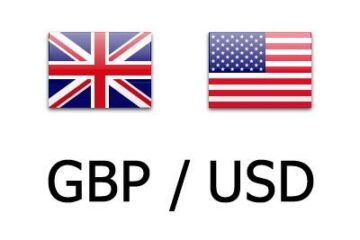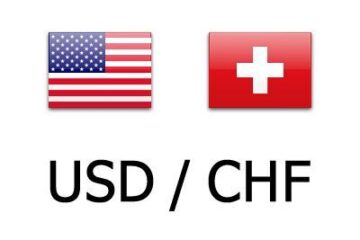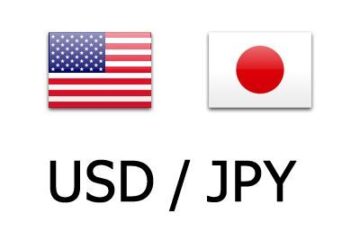In December 2024, Japanese automakers Honda (HMC) and Nissan (NSANY) entered formal talks to enter into a possible merger under a new holding company in an attempt to try to adapt to the new competition in a more difficult world auto industry.
Both Honda and Nissan were considered trailblazers during a dark, difficult period for the automotive industry. However, in the new digital age for automotive tech, fearless competitors like Tesla (TSLA) and BYD (BYDDY) have surpassed them in terms of emerging technology.
💰💸 Don’t miss the move: Subscribe to TheStreet’s free daily newsletter💰💸
“The rise of Chinese automakers and new players has changed the car industry quite a lot,” Mibe said. “We have the potential to be a world-class, leading company in new mobility. By 2030, we need the artillery to compete on the battlefield. So, we are starting today.”
But while the melding of two of Japan’s biggest Auto avengers may be able to launch the well-known brands as front-runners in a new era of automobiles, new reports suggest that business interests may have doomed the link-up.
Makoto Uchida, chief executive officer of Nissan Motor Co., left, and Toshihiro Mibe, chief executive officer of Honda Motor Co., pose for photographs during a joint news conference in Tokyo, Japan
Nissan-Honda merger may not happen after all, reports say
As per reports by The Asahi Shimbun, Kyodo News and Nikkei, the landmark deal that would have seen Nissan and Honda merge under a new, common holding company may have fallen through.
Several sources connected to the matter noted that the merger talks between Nissan and Honda could end, noting that the two automakers could not reach an amicable agreement. Both automakers will hold board meetings to discuss whether the merger is still worth pursuing.
The report comes after Japanese business media outlets reported that Honda expressed interest in buying out Nissan and turning the automaker into a Honda subsidiary. This move has received some pushback from Nissan.
As per Bloomberg, Nissan plans to hold a board meeting on February 5 in the afternoon in Tokyo, during which it may reject Honda’s proposal. However, the final decision could be marred by some senior Nissan officials who are eager to entertain Honda’s offer.
Related: Nissan, Honda merger hangs on one expensive condition
This is not the first mention of Honda demonstrating some lack of control over its fellow Japanese automotive compatriot.
Previously, Honda has demonstrated concern about the potential influence of French automaker Renault on the planned merger between them and Nissan, going as far as to ask Nissan if it could buy out their stake.
Renault’s 35.7% stake in Nissan is worth $35.7 billion. However, Kyodo News has suggested that Honda is worried that Nissan can be vulnerable to outside influence.
Shortly after Honda and Nissan’s merger news started circulating in December 2024, reports emerged that an exec from Taiwanese electronics giant Foxconn landed in France to talk with Renault about buying out its Nissan stake.
Related: The landmark Nissan-Honda merger is taking a surprising new turn
The automaker , formerly known as Datsun in the U.S., was on the verge of losing everything prior to the landmark announcement with Honda back in December.
In the month prior, unnamed senior Nissan officials warned that it had “12 or 14 months to survive” and underwent some drastic restructuring to try to turn around its situation.
In addition to some adjustments that reduced its full-year sales and operating outlooks, it embarked on a mission to save $3 billion in costs by reducing its workforce, slashing a significant part of its production capacity, and selling a sizable share in domestic rival Mitsubishi.
Additionally, U.S. Nissan dealers noted that they were left in the dark on the issue bubbling up in Japan and blamed the company for giving them radio silence. In the U.S., Nissan’s biggest market, data from Automotive News showed that the average profitability of Nissan’s U.S. dealers is at its lowest level in nearly 15 years and that its market share is at an all-time low.
“In many markets, Nissan dealers are, at best, selling half the volume that competing Honda, Toyota, Subaru and Hyundai stores are selling,” a dealer told AutoNews. “If you’re not selling enough new cars, you’re not generating enough trade-ins, which feed profit centers such as finance, service and parts.”
More Automotive:
Dodge confirms gas-powered Charger Sixpack coming this summerJeep parent makes executive overhaul as it searches for new CEOHonda faces a massive recall over dangerous software glitch
Nissan had to pull its bootstraps to join Honda
The latest news comes shortly after Honda and Nissan recently said that they will postpone the announcement of their merger details from what they originally planned for the end of January to sometime in mid-February.
According to sources who spoke with Kyodo News, the decision to move the announcement came amid slow-moving progress. Honda felt that Nissan’s efforts to turn around its business were insufficient and subsequently demanded more sweeping changes.
Honda hyper-fixated on Nissan’s financial health when it announced the merger.
Previously, Honda’s CEO, Toshihiro Mibe, made it clear during its December press announcement that the merger was “not a rescue of Nissan,” adding that Nissan demonstrating an ability to head toward profitability was a “prerequisite” before further merger talks could happen.
Related: Nissan’s US factory workers are being forced into a harsh reality
Nissan was making legitimate strides to reduce its weight on its pocketbook.
In addition to the extensive restructuring efforts that its CEO Makoto Uchida had previously announced, Nissan began making cuts that affected its American auto workers.
The automaker plans to cut U.S. total annual production by an estimated 12%, or 63,000 cars, this year by reducing the headcount at the factories that make its Rogue SUV and the midsize Altima sedan, as well as an engine factory that makes engines for various Nissan and Infiniti cars, and the electric motor assembly in Nissan’s Leaf electric car.
Nissan’s North American head of manufacturing and supply chain management, David Johnson, told Automotive News that the changes are a “momentary reaction” to demand.
“We see the market being very challenging for certain product lines,” Johnson said. “Plant utilization rates are not so favorable right now, especially when you look at the two-shift pattern.”
Honda wanted “disguised takeover,” former Nissan CEO said
Shortly after Nissan, Honda and Mitsubishi announced that they were joining up to share electric-vehicle and software technology, former Nissan CEO Carlos Ghosn said in an interview that Honda had bad intentions regarding its supposed partnership with Nissan.
As a 19-year Nissan veteran who led the development of key models like the Leaf EV and the GT-R supercar, he warned that Honda was interested in a “disguised takeover” of Nissan.
“I can’t imagine for one moment how it’s going to work between Honda and Nissan unless it’s a takeover, unless it’s a disguised takeover by Honda of Nissan and Mitsubishi with Honda in the driver’s seat,” Ghosn said.
“It’s going to be a takeover, a disguised takeover.”
Shortly after Nissan and Honda announced their merger, Ghosn appeared on CNBC’s Squawk Box Europe. There, he predicted that Honda was “going to be in the driver’s seat” regarding the merger terms, concluding that Nissan is “going to be the victim of a carnage because there is total duplication between Nissan and Honda.”
“There is practically no complementarity here, which means, if they want to make synergy it is going to be through maybe cost reduction, duplication of plan, duplication of technology, and we know exactly who’s going to pay the price of it. It’s going to be the minor partner, and it’s going to be Nissan,” Ghosn said.
The Nissan Motor Company trades on OTC markets in the United States as NSANY and on the Tokyo Stock Exchange under the ticker number 7201.
The Honda Motor Company is listed on the New York Stock Exchange under the ticker HMC.
Related: Veteran fund manager issues dire S&P 500 warning for 2025


